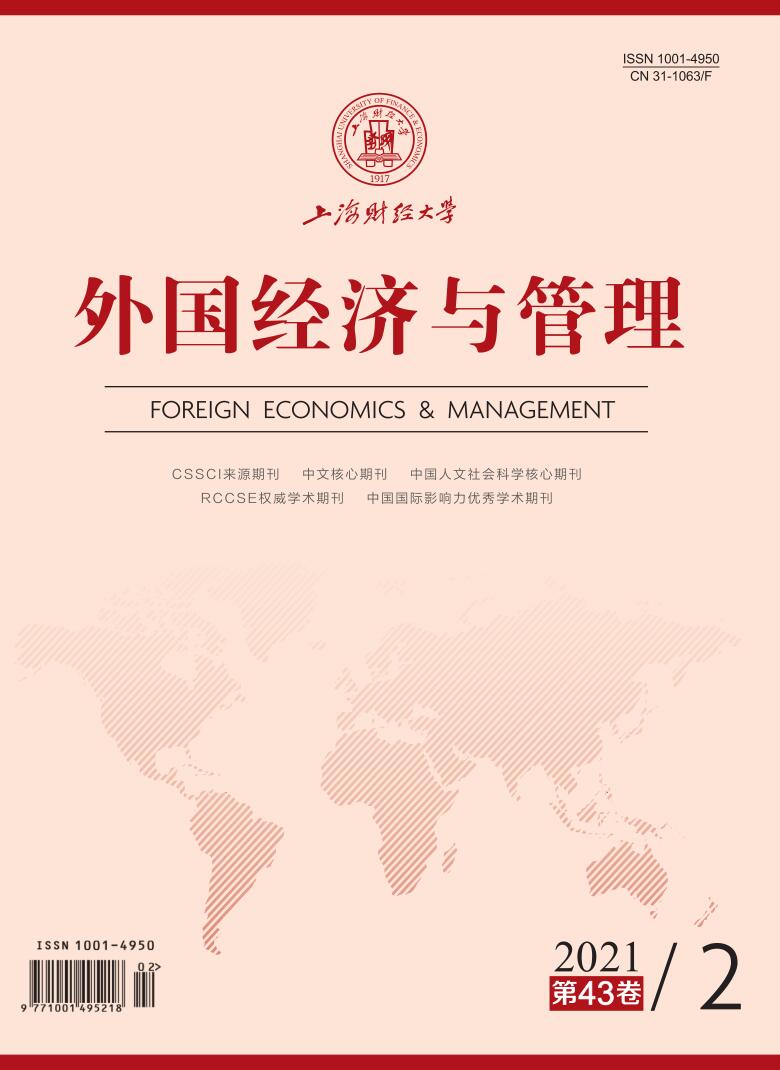数字技术的发展催生出新型灵活就业形式,在线劳动平台通过互联网连接劳工方和用工方,利用算法技术和数据信息实现劳动供给和需求的快速精准匹配。过去的研究认为,在线劳动平台作为共享经济下工作者实现灵活就业、创造价值的新场所,提供了更加灵活自主的工作机会。但事实上,在线平台通过算法技术加强了对劳动过程的控制,工作者在行为上的自主性受到限制与主观知觉上相信自主性能力增强的差异即工作自主悖论现象逐渐受到学术界的广泛关注。本文在系统梳理在线劳动平台算法管理与工作自主性相关文献的基础上,围绕“平台工作自主吗”这一核心问题展开探讨,从交易成本理论视角出发针对算法管理影响工作自主性的代表性研究成果进行述评,同时基于权力依赖理论阐释了工作自主悖论现象的形成机制及影响效应,最后提出了该领域未来的研究方向。
平台工作自主吗?在线劳动平台算法管理对工作自主性的影响
摘要
参考文献
2 崔晓明, 姚凯, 胡君辰. 交易成本、网络价值与平台创新——基于38个平台实践案例的质性分析[J]. 研究与发展管理,2014, 26(3): 22-31. DOI:10.3969/j.issn.1004-8308.2014.03.003
6 蒋岩波, 朱格锋. 共享经济模式下网约车平台与司机法律关系的辨析与认定[J]. 河南财经政法大学学报,2019, 34(5): 57-64. DOI:10.3969/j.issn.2095-3275.2019.05.008
8 孙萍. “算法逻辑”下的数字劳动: 一项对平台经济下外卖送餐员的研究[J]. 思想战线,2019, 45(6): 50-57. DOI:10.3969/j.issn.1001-778X.2019.06.006
11 徐鹏, 徐向艺. 人工智能时代企业管理变革的逻辑与分析框架[J]. 管理世界,2020, 36(1): 122-129, 238. DOI:10.3969/j.issn.1002-5502.2020.01.012
12 Arnold D, Bongiovi J R. Precarious, informalizing, and flexible work: Transforming concepts and understandings[J]. American Behavioral Scientist,2013, 57(3): 289-308. DOI:10.1177/0002764212466239
13 Barnes S A, Green A, De Hoyos M. Crowdsourcing and work: Individual factors and circumstances influencing employability[J]. New Technology, Work and Employment,2015, 30(1): 16-31. DOI:10.1111/ntwe.12043
14 Burbano V C. Social responsibility messages and worker wage requirements: Field experimental evidence from online labor marketplaces[J]. Organization Science,2016, 27(4): 1010-1028. DOI:10.1287/orsc.2016.1066
15 Cusumano M A. Staying power: Six enduring principles for managing strategy and innovation in an uncertain world[M]. Oxford: Oxford University Press, 2010: 17-52.
16 Deci E L, Olafsen A H, Ryan R M. Self-determination theory in work organizations: The state of a science[J]. The Annual Review of Organizational Psychology and Organizational Behavior,2017, 4(1): 19-43. DOI:10.1146/annurev-orgpsych-032516-113108
19 Downs J S, Holbrook M B, Sheng S, et al. Are your participants gaming the system? Screening Mechanical Turk workers[A]. Proceedings of the SIGCHI Conference on Human Factors in Computing Systems[C]. New York: ACM, 2010.
20 Duggan J, Sherman U, Carbery R, et al. Algorithmic management and app-work in the gig economy: A research agenda for employment relations and HRM[J]. Human Resource Management Journal,2020, 30(1): 114-132. DOI:10.1111/1748-8583.12258
21 Emerson R M. Power-dependence relations[J]. American Sociological Review,1962, 27(1): 31-41. DOI:10.2307/2089716
22 Fieseler C, Bucher E, Hoffmann C P. Unfairness by design? The perceived fairness of digital labor on crowdworking platforms[J]. Journal of Business Ethics,2019, 156(4): 987-1005. DOI:10.1007/s10551-017-3607-2
23 Fiksenbaum L, Jeng W, Koyuncu M, et al. Work hours, work intensity, satisfactions and psychological well-being among hotel managers in China[J]. Cross Cultural Management: An International Journal,2010, 17(1): 79-93. DOI:10.1108/13527601011016925
24 Gandini A. Labour process theory and the gig economy[J]. Human Relations,2019, 72(6): 1039-1056. DOI:10.1177/0018726718790002
25 Gebauer H, Fleisch E, Friedli T. Overcoming the service paradox in manufacturing companies[J]. European Management Journal,2005, 23(1): 14-26. DOI:10.1016/j.emj.2004.12.006
28 Kokkodis M, Ipeirotis P G. Reputation transferability in online labor markets[J]. Management Science,2016, 62(6): 1687-1706. DOI:10.1287/mnsc.2015.2217
29 Kraimer M L, Shaffer M A, Harrison D A, et al. No place like home? An identity strain perspective on repatriate turnover[J]. Academy of Management Journal,2012, 55(2): 399-420. DOI:10.5465/amj.2009.0644
30 Lehdonvirta V. Flexibility in the gig economy: Managing time on three online piecework platforms[J]. New Technology, Work and Employment,2018, 33(1): 13-29. DOI:10.1111/ntwe.12102
31 Lewis M W, Andriopoulos C, Smith W K. Paradoxical leadership to enable strategic agility[J]. California Management Review,2014, 56(3): 58-77. DOI:10.1525/cmr.2014.56.3.58
33 Macky K, Boxall P. High-involvement work processes, work intensification and employee well-being: A study of New Zealand worker experiences[J]. Asia Pacific Journal of Human Resources,2008, 46(1): 38-55. DOI:10.1177/1038411107086542.
35 Matherne B P, O’Toole J. Uber: Aggressive management for growth[J]. Case Journal,2017, 13(4): 561-586. DOI:10.1108/TCJ-10-2015-0062
36 Mazmanian M, Orlikowski W J, Yates J A. The autonomy paradox: The implications of mobile email devices for knowledge professionals[J]. Organization Science,2013, 24(5): 1337-1357. DOI:10.1287/orsc.1120.0806
37 Möhlmann M, Zalmanson L. Hands on the wheel: Navigating algorithmic management and Uber drivers’ autonomy[A]. Proceedings of the International Conference on Information Systems[C]. Seoul, South Korea, 2017.
38 Moore J E. One road to turnover: An examination of work exhaustion in technology professionals[J]. MIS Quarterly,2000, 24(1): 141-168. DOI:10.2307/3250982
39 Moreno A, Terwiesch C. Doing business with strangers: Reputation in online service marketplaces[J]. Information Systems Research,2014, 25(4): 865-886. DOI:10.1287/isre.2014.0549
40 Ogbonna E, Harris L C. Work intensification and emotional labour among UK university lecturers: An exploratory study[J]. Organization Studies,2004, 25(7): 1185-1203. DOI:10.1177/0170840604046315
42 Ramsay H, Scholarios D, Harley B. Employees and high-performance work systems: Testing inside the black box[J]. British Journal of Industrial Relations,2000, 38(4): 501-531. DOI:10.1111/1467-8543.00178
44 Rhoades L, Eisenberger R. Perceived organizational support: A review of the literature[J]. Journal of Applied Psychology,2002, 87(4): 698-714. DOI:10.1037/0021-9010.87.4.698
45 Rindfleisch A. Transaction cost theory: Past, present and future[J]. AMS Review,2020, 10(1): 85-97.
47 Schmidt F A. Digital labour markets in the platform economy: Mapping the political challenges of crowd work and gig work[R]. Bonn, Germany: Friedrich-Ebert-Stiftung, 2017.
49 Shevchuk A, Strebkov D, Davis S N. The autonomy paradox: How night work undermines subjective well-being of internet-based freelancers[J]. ILR Review,2019, 72(1): 75-100. DOI:10.1177/0019793918767114
50 Smith A. “The magnificent 7[am]?” Work-life articulation beyond the 9[am] to 5[pm] “norm”[J]. New Technology, Work and Employment,2016, 31(3): 209-222. DOI:10.1111/ntwe.12070
51 Stewart A, Stanford J. Regulating work in the gig economy: What are the options[J]. The Economic and Labour Relations Review,2017, 28(3): 420-437. DOI:10.1177/1035304617722461
52 Stone D L, Lukaszewski K M, Stone-Romero E F, et al. Factors affecting the effectiveness and acceptance of electronic selection systems[J]. Human Resource Management Review,2013, 23(1): 50-70. DOI:10.1016/j.hrmr.2012.06.006
53 Sundararajan A. The sharing economy: The end of employment and the rise of crowd-based capitalism[M]. Cambridge, MA: MIT Press, 2016.
54 Thomas K D. Taxing the gig economy[J]. University of Pennsylvania Law Review,2018, 166(6): 1415-1473.
55 van Doorn N. Platform labor: On the gendered and racialized exploitation of low-income service work in the “on-demand” economy[J]. Information, Communication and Society,2017, 20(6): 898-914. DOI:10.1080/1369118X.2017.1294194
57 Weber H. TaskRabbit users revolt as the company shuts down its bidding system[EB/OL]. http://venturebeat.com/2014/07/10/taskrabbit-users-revolt-as-the-company-shuts-down-its-bidding-system/, 2014-07-10.
58 Wee E X M, Liao H, Liu D, et al. Moving from abuse to reconciliation: A power-dependence perspective on when and how a follower can break the spiral of abuse[J]. Academy of Management Journal,2017, 60(6): 2352-2380. DOI:10.5465/amj.2015.0866
61 Wood A J, Graham M, Lehdonvirta V, et al. Good gig, bad gig: Autonomy and algorithmic control in the global gig economy[J]. Work, Employment and Society,2019, 33(1): 56-75. DOI:10.1177/0950017018785616
62 Zhang Y, Waldman D A, Han Y L, et al. Paradoxical leader behaviors in people management: Antecedents and consequences[J]. Academy of Management Journal,2015, 58(2): 538-566. DOI:10.5465/amj.2012.0995
引用本文
刘善仕, 裴嘉良, 钟楚燕. 平台工作自主吗?在线劳动平台算法管理对工作自主性的影响[J]. 外国经济与管理, 2021, 43(2): 51-67.
导出参考文献,格式为:






 6206
6206  9158
9158

